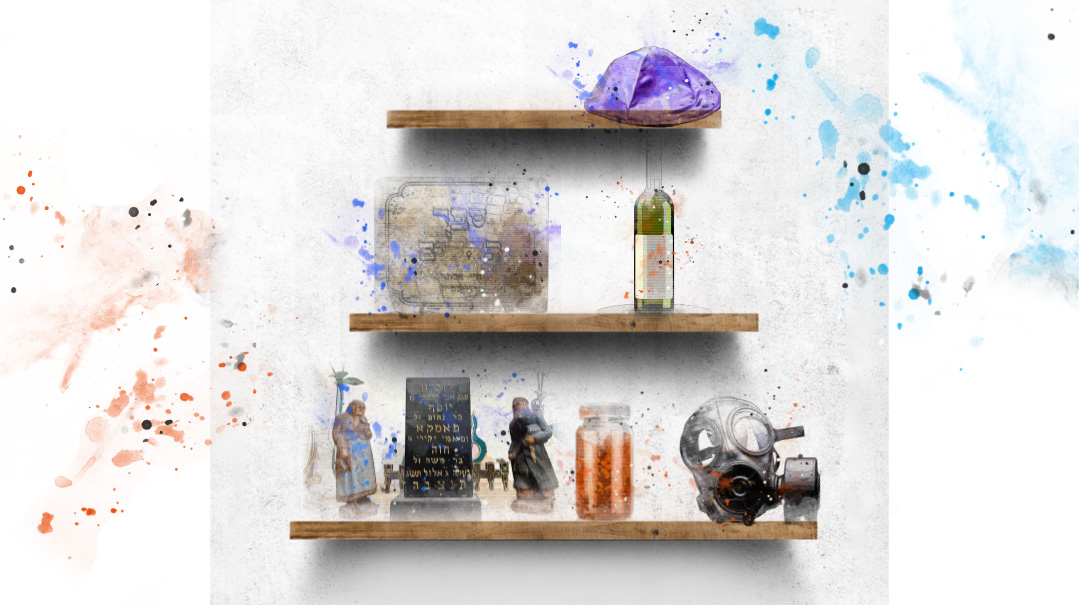On My Shelf

Writers share the backstory of the prized possession they’ll keep forever

Project Coordinator Rachel Bachrach
Holy Tablet
By Yosef Zoimen
A few minutes in the morning changed his life
Winter is just over, and for months the campgrounds have been eerily quiet. No booming “Yehei Shemei Rabbas,” no cheers from the hockey court, just teams of hard-working Amish families braving the cold to construct bunkhouses, expand the amphitheater, and frame the brand-new shul for the upcoming summer.
But while the boys may be gone, their stories remain. The humble plywood walls bear witness to summers of immeasurable growth only camp can foster.
And in one camp owner’s bungalow, sitting safely on the bookshelf is a memento that showcases that triumph and inspires his vision, pushing him once again to spend the winter pumping money into the camp for necessary upgrades and his head counselor to work hard recruiting the most dedicated counselors. Because you never know what merits await.
Last July, when Dovid stepped off the van from the airport to camp, he handed his electronic tablet in upon arrival, as per camp policy. Dovid lives out of town, and he brought a tablet with him so he could keep himself occupied on the long flight and van ride.
After a few days, Dovid’s counselor Matis, a third-year beis medrash bochur who’d come with a chevreh of yeshivah friends, asked his camper if he’d like to learn an extra seder outside of the regular camp learning programs.
“Sure,” Dovid agreed, and morning after morning, the two of them had a 15-minute post-Shacharis mussar seder. The timeless words of the Ramchal enveloped Dovid, and he found that he was more content, as well as more passionate in his davening and learning.
The camp environment — great sports, newfound friends, incredible ruach — worked wonders, and Dovid knew he was progressing. He’d come to camp after yet another schoolyear of ups and downs, but now he was hopeful that the following year, with his new outlook and a new rebbi, would be one of more ups, the year that he could break thorough and shine.
ON the second to last day of camp, Dovid confided in Matis.
“I know tomorrow night after the closing banquet, they’ll give me back my tablet,” he said. “I’ll start watching the same schmutz, and I’ll be right back where I was before the summer.”
“So leave the tablet here — don’t pick it up from the office,” Matis suggested.
“I can’t do that,” Dovid replied. “I worked so hard — at different jobs the entire year — so I could save $250 to buy it. There’s no way I’m leaving it here.”
Without missing a beat, Matis reached into his wallet and counted out $250.
“Here, Dovid, I’m buying the tablet off you.”
Dovid’s face was raw emotion: a mix of utter shock and profound joy. Not only had his beloved counselor and chavrusa taken the time to learn with him every day that summer, but he’d instantly given up what could have easily been his entire month’s earnings to help Dovid maintain his incredible progress.
When the camp’s owner — my close friend — got wind of the interaction, he bought the tablet from Matis for $250, placing it on the bookshelf his bungalow. His hard work had been worth it! That tablet is no longer in use, but it sits there still, a reminder that the support of a caring counselor can go a long way, and that every boy is capable of greatness.
Yosef Zoimen is an attorney in private practice in Cincinnati, Ohio, and is involved in the explosive growth of the city’s Torah community.
Oops! We could not locate your form.

